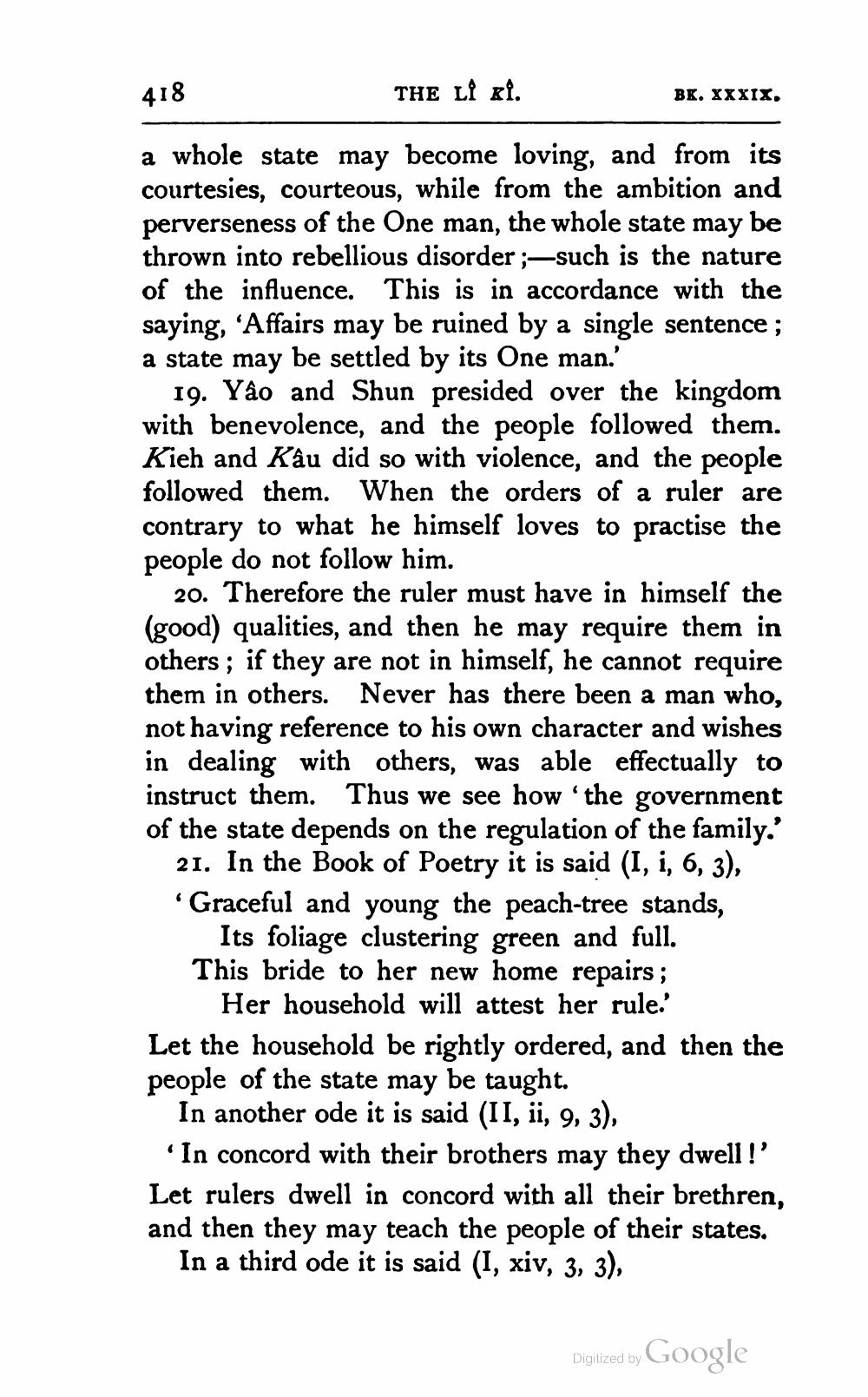________________
418
THE LÎ xi.
BK. XXXIX.
a whole state may become loving, and from its courtesies, courteous, while from the ambition and perverseness of the One man, the whole state may be thrown into rebellious disorder ;—such is the nature of the influence. This is in accordance with the saying, 'Affairs may be ruined by a single sentence; a state may be settled by its One man.'
19. Yão and Shun presided over the kingdom with benevolence, and the people followed them. Kieh and Kâu did so with violence, and the people followed them. When the orders of a ruler are contrary to what he himself loves to practise the people do not follow him.
20. Therefore the ruler must have in himself the (good) qualities, and then he may require them in others; if they are not in himself, he cannot require them in others. Never has there been a man who, not having reference to his own character and wishes in dealing with others, was able effectually to instruct them. Thus we see how the government of the state depends on the regulation of the family.' 21. In the Book of Poetry it is said (I, I, 6, 3), Graceful and young the peach-tree stands,
Its foliage clustering green and full. This bride to her new home repairs ;
Her household will attest her rule.' Let the household be rightly ordered, and then the people of the state may be taught.
In another ode it is said (II, ii, 9, 3), 'In concord with their brothers may they dwell !' Let rulers dwell in concord with all their brethren, and then they may teach the people of their states.
In a third ode it is said (I, xiv, 3, 3),
Digitized by Google




